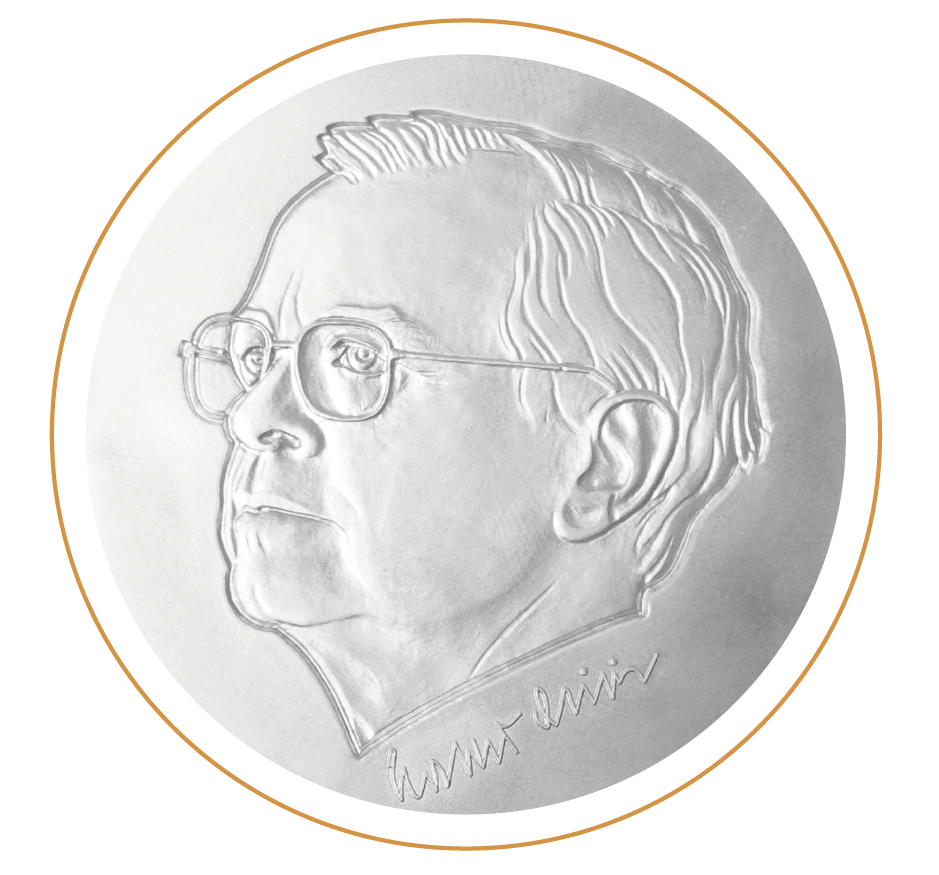
Heisig Award – second edition
The 20 Polish universities participating in the “The Excellence Initiative – Research University” programme have selected 8 of their candidates, and from among them the Award Committee has selected 3 nominees for the second edition of the Heisig Award, also known as the “Polish Nobel”, the highest financial award for a Polish scientist. The winner, who will receive PLN 200,000, will be announced on 2 October 2023 at the University of Wrocław.
Professor Norbert Heisig is a German physician who was born in Breslau in 1933. He combined his medical studies with classical philology at the universities of Freiburg, Tübingen and Hamburg. He retired in 2000 and became involved, among other things, in supporting the academic community of the University of Wrocław. On his initiative, the Baroque vault in the Oratorium Marianum in the UWr main building was repainted. Professor Heisig was the founder of the highest financial award for a Polish scientist, first awarded in 2021, when prof. Jan Potempa of Jagiellonian University was honored with it.
The intention of the founder of the Heisig Award is to honor Polish scientists who conduct research at the highest level and whose discoveries change the world.
In the second edition of the award, 8 candidates were considered:
Prof. dr hab. Mariusz Jaskólski (Adam Mickiewicz University of Poznań)
Chemist. He has made significant contributions to the development of structural biology, the implications of which are relevant, among other things, to the fight against human disease. He has contributed to the development of structural biology methodologies, especially in the field of ultra-high resolution macromolecular crystallography and structure validation.
Prof. dr hab. Tomasz Kapitaniak (Łódź University of Technology)
Professor of theoretical and applied mechanics. His research focuses on nonlinear dynamics. His most important scientific discoveries include the development of control and synchronization methods for chaotic systems, the identification and description of new types of bifurcations, the identification of the synchronization mechanism in coupled mechanical oscillators, and the elucidation of the origin of randomness in a mechanical system.
Prof. dr hab. Tomasz Klupa (Jagiellonian University)
Head of the Advanced Diabetes Laboratory of the Department of Metabolic Diseases. His main scientific achievements are related to research on monogenic forms of diabetes, as well as the application of advanced technologies in the treatment of type 1 diabetes in particular.
Dr hab. Katarzyna Krukiewicz, prof. PŚ (Silesian University of Technology)
Chemist. The results of her research have enabled the use of conducting polymers as multifunctional electrode coatings, particularly useful in the treatment of neurodegenerative diseases, including Parkinson’s and Alzheimer’s diseases, cardiovascular diseases, bone loss, cancer, etc.
Prof. dr hab. Lechosław Latos-Grażyński (University of Wrocław)
Chemist. A fundamental aspect of his research is the construction of porphyrins and metalloporphyrins with molecular and electron structures. His team’s research led to the discovery of a unique isomer of porphyrin, now bearing the name carbaporphyrin.
Prof. dr hab. Małgorzata Myśliwiec (Medical University of Gdańsk)
Head of the Department of Pediatrics, Diabetology and Endocrinology. Her interests and scientific activities, in which she has outstanding achievements, are in pediatric diabetology and endocrinology, centered on the issues of nephropathy and sugar retinopathy, and, above all, on the search for new immunomodulatory therapies in children with type 1 diabetes.
Prof. dr hab. Zdzisław Noga (Pedagogical University of Cracow)
Historian, medievalist. His outstanding scholarly achievements focus on historical cartography, Polish-German relations and ethnic minorities in Polish cities, especially in the pre-industrial period. He is the author of more than 200 publications.
Prof. dr hab. Rafał Weron (Wrocław University of Science and Technology)
Professor of Economic Sciences. He is one of the world’s leading experts in energy market forecasting. His other research interests include computational economics, computational statistics and machine learning, agent modeling and complex systems, financial engineering and risk management, and stochastic modeling and time series analysis.
FROM AMONG THE CANDIDATES, THE AWARD CHAPTER SELECTED 3 NOMINEES:
Prof. dr hab. Mariusz Jaskólski
– chemical sciences, X-ray crystallography. Nomination in recognition of structural studies of proteins of great importance to medical development and contributions to the improvement of X-ray crystallography methods.
Prof. dr hab. Tomasz Kapitaniak
– technical sciences, mechanics and electronics. Nomination in recognition of research on the chaotic behavior of dynamical systems in engineering science models.
Prof. dr hab. Lechosław Latos-Grażyński
– chemical sciences, organic chemistry. Nomination in recognition of the discovery of the structural dissimilarity of porphyrins, which has resulted in a wealth of innovative structures with broad research and application potential



